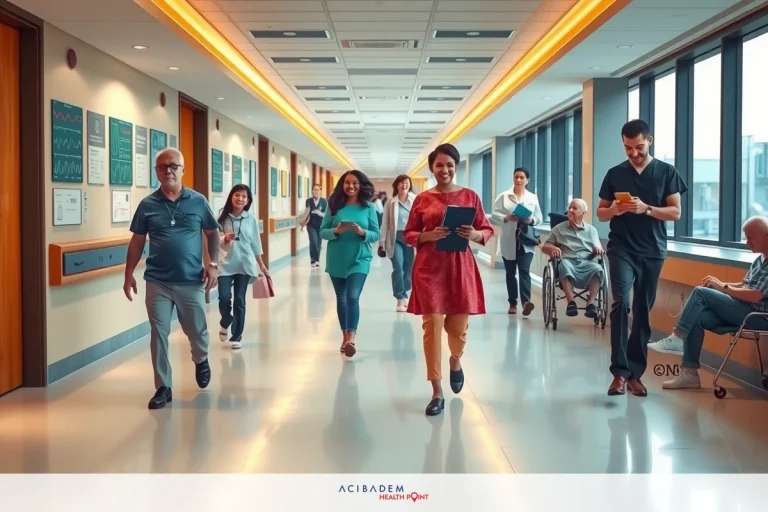What is the Success Rate of CAR T-cell Therapy?
What is the Success Rate of CAR T-cell Therapy? CAR T-cell therapy has gained attention in recent years. This treatment helps fight cancer by using the body’s own cells. Many people are curious about its success rate. It is important to look at facts and numbers to understand it better. Let’s explore this further.
The success rate of CAR T-cell therapy can vary from person to person. Some see great outcomes while others may not respond as well. Clinical trials offer hope and show positive results for many patients. Each case is unique but there are common trends seen across studies.
Patient stories often highlight both challenges and successes with CAR T-cell therapy. These experiences help paint a full picture of what to expect during treatment. Understanding these stories can provide insight into potential results for new patients considering this option.
Understanding CAR T-cell Therapy
CAR T-cell therapy is a new way to treat cancer. Doctors take T-cells from the patient’s blood. These cells are then changed in a lab to fight cancer cells better. After this they put them back into the patient’s body. This method helps some people beat their cancer.
The process of CAR T-cell therapy involves many steps. First doctors collect the T-cells through a simple procedure. Next these cells are modified with special receptors that target cancer cells specifically. Finally the enhanced cells are infused back into the patient for treatment.
This type of therapy has shown promise in clinical trials across various types of cancers. It offers hope where other treatments might have failed before. The success rate can vary based on individual cases and types of cancers treated with it.
Patients who undergo this treatment often see different outcomes based on several factors like age or health status prior to starting it . Clinical trials continue to study its effects more deeply every year aiming at improving overall success rates even further .
Clinical Trials and Results
Clinical trials play a key role in understanding CAR T-cell therapy. These studies test the treatment’s safety and effectiveness. In many trials patients have shown notable improvements. The success rate varies but often shows promise for those with hard-to-treat cancers.
Results from clinical trials reveal important insights into treatment outcomes. Many patients experience reduced tumor sizes after receiving CAR T-cell therapy. Some even achieve full remission which is very encouraging. However not all patients respond the same way; results can differ widely.
Ongoing research helps improve this cancer therapy over time. New clinical trials continue to refine methods and enhance success rates further . Patients considering CAR T-cell therapy should consult with their doctor about recent trial results to make informed decisions.
Factors Influencing Success Rate
Several factors influence the success rate of CAR T-cell therapy. One major factor is the type of cancer being treated. Different cancers respond in various ways to this treatment. Some types show higher success rates than others.
The patient’s health condition also plays a crucial role. Patients with stronger immune systems tend to have better outcomes. Age can be another important factor; younger patients often respond more positively than older ones.
Another key factor is the specific genetic makeup of both the patient and their cancer cells. Genetic variations can affect how well CAR T-cells target and destroy cancer cells. Personalized approaches are sometimes needed for different genetic profiles.

Additionally prior treatments may impact success rates as well . Patients who have undergone multiple lines of chemotherapy or radiation might experience different results compared to those receiving CAR T-cell therapy as an early intervention .
Lastly ongoing clinical trials aim at identifying new variables that could further influence treatment outcomes . Continuous research helps refine strategies for improving overall effectiveness and expanding potential benefits for diverse groups .
Patient Experiences
Patient experiences with CAR T-cell therapy vary widely. Some patients report remarkable treatment outcomes and significant improvements. These success stories often highlight the potential of this cancer therapy. However not all patient experiences are uniformly positive.
Many patients undergo a challenging journey during CAR T-cell therapy. Side effects can be intense but usually manageable with proper care . Common side effects include fever, fatigue, and low blood counts . Despite these challenges many find the benefits outweighing the drawbacks .
Clinical trials provide valuable insights into diverse patient experiences . They help identify patterns in how different people respond to the treatment . This data aids doctors in tailoring therapies for better results .
Success rate is influenced by various factors unique to each patient’s case history and health status prior to starting treatment. Some might experience rapid improvement while others may take longer or need additional interventions for optimal outcomes.
Overall hearing from other patients who have undergone CAR T-cell therapy offers hope and realistic expectations about what lies ahead on their own path toward recovery .
Frequently Asked Questions
What is CAR T-cell therapy?
CAR T-cell therapy is a type of cancer treatment that uses modified T- cells to target and kill cancer cells.
How effective is CAR T-cell therapy?
The success rate varies but many patients see significant improvements. Clinical trials continue to show promising results.
Are there side effects with CAR T-cell therapy?
Yes, common side effects include fever, fatigue, and low blood counts. These are usually manageable with proper care.
Who can benefit from CAR T-cell therapy?
Patients with certain types of cancers may benefit. Consult your doctor for specific eligibility information. Disclaimer: The answers provided are for informational purposes only and do not constitute medical advice.








